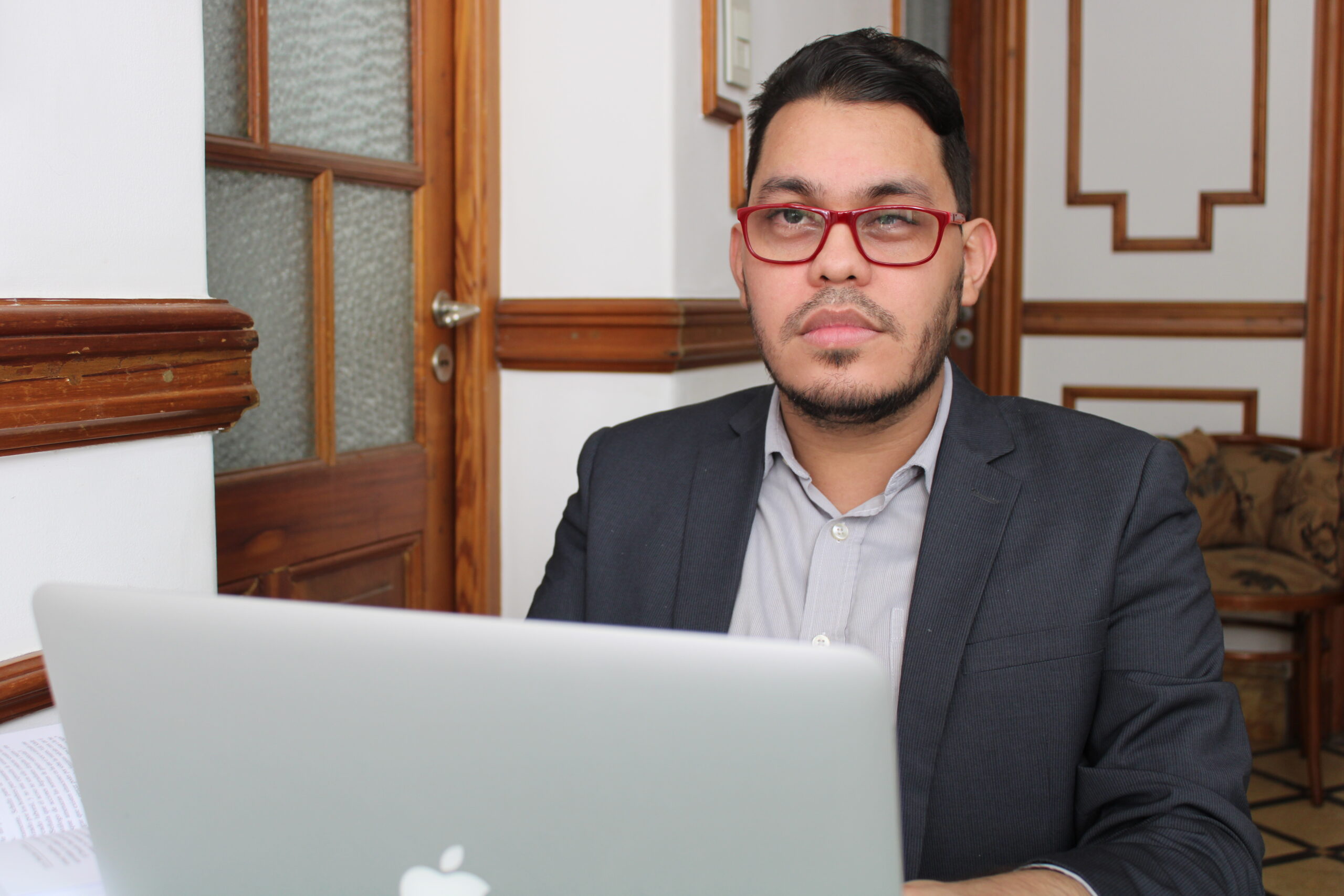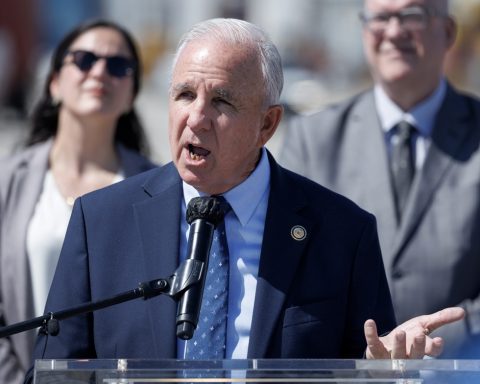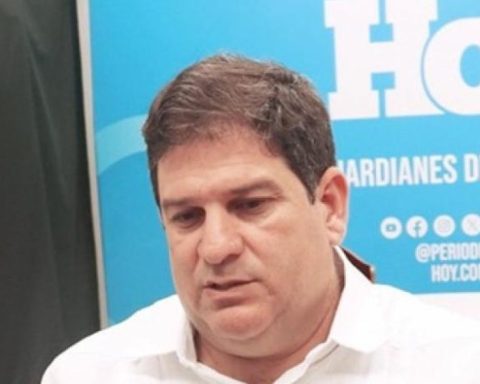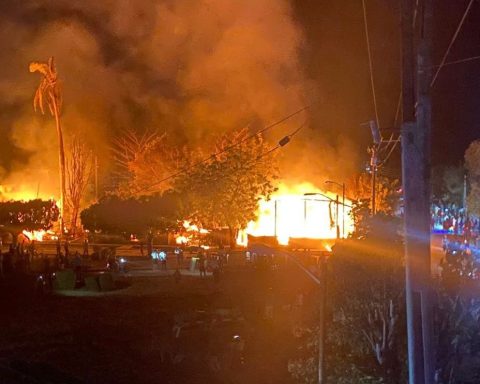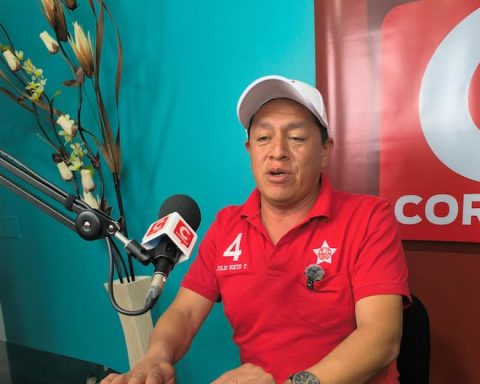Danny Ramírez Ayérdiz is a Nicaraguan lawyer and migrant who came to Argentina to study for a doctorate in 2019. Fate pushed him to found the Inter-American Legal Assistance Center for Human Rights (Calidh). His work in a non-governmental organization in Nicaragua forced him to take the difficult situation of not returning to his country and settling in the capital, Buenos Aires. The NGO where he collaborated in Managua showed solidarity and supported the relatives of political prisoners. Ramírez considers that Daniel and Rosario carried out a repression directed against the poorest people, “a class repression.”
“You can see that before the unconstitutional amnesty law, 90% of political prisoners were poor people, so that is where you start to think about how a government that claims to be based on the popular classes, their weapons and its dungeons are destined for the poor from whom it says its legitimacy emanates,” he told Article 66.
“The Sandinista National Liberation Front long ago lost its historical commitment to the popular classes and ended up breaking it, in historical terms if we want to understand it that way, when the police and parapolice forces mercilessly killed the humblest people who attended the marches or resisted for a free and democratic Nicaragua,” he added.
The idea of founding a group of human rights defense lawyers arose years before it materialized in April 2020. Ramírez, together with other lawyers from Nicaragua, Peru, Chile and Argentina, devised the creation of a center that would provide legal advice and support to people seeking justice. international when in their countries, the internal organs that owe protection to the victims do not want to do so or are simply aware and ignore them.
Related news: Relatives of political prisoners lament that the dictatorship has forced the nuncio to leave Nicaragua “abruptly”
This is how Calidh was born, out of a desire for justice for the most vulnerable people and groups in Latin America, victims of structural violence such as poverty, or institutional violence, such as that perpetrated by the Nicaraguan regime.
Ramírez explained to this media outlet that the center’s mission is to promote, defend and contribute to the justiciability of human rights, especially those of groups and individuals in situations of vulnerability in Latin America. In other words, Calidh seeks to train experts, activists from grassroots organizations in the region, who do not have the tools to bring their cases before the rights bodies of the Organization of American States (OAS) and the United Nations ( UN).
“We want people and groups that in their countries have been ignored by state authorities to have the opportunity to seek justice alternatives for the rights that have been continuously denied them, especially in countries with serious democratic setbacks, such as the Nicaraguan case,” he said. the jurist
Related news: Sister of Edward Lacayo, to the international community: “There are not only 40 political prisoners”
The Nicaraguan is coordinator of the international litigation area of Calidh, one of the three branches served by the organization. In addition, they work on a training program for activists and lawyers in human rights tools and the academic program “Take the Word”, with which they seek that leaders, activists and referents of social organizations can occupy academic spaces such as publications such as the scientific magazines.
«We want the legitimate voice of those who live and accompany the populations that suffer the contempt of the ruling classes and economic groups to have enough tools so that no one speaks for them and they can write in those very closed circles. In the last two programs, for now we are directing workshops to people from various social movements in Argentina, Peru, Paraguay and Colombia », he explained.
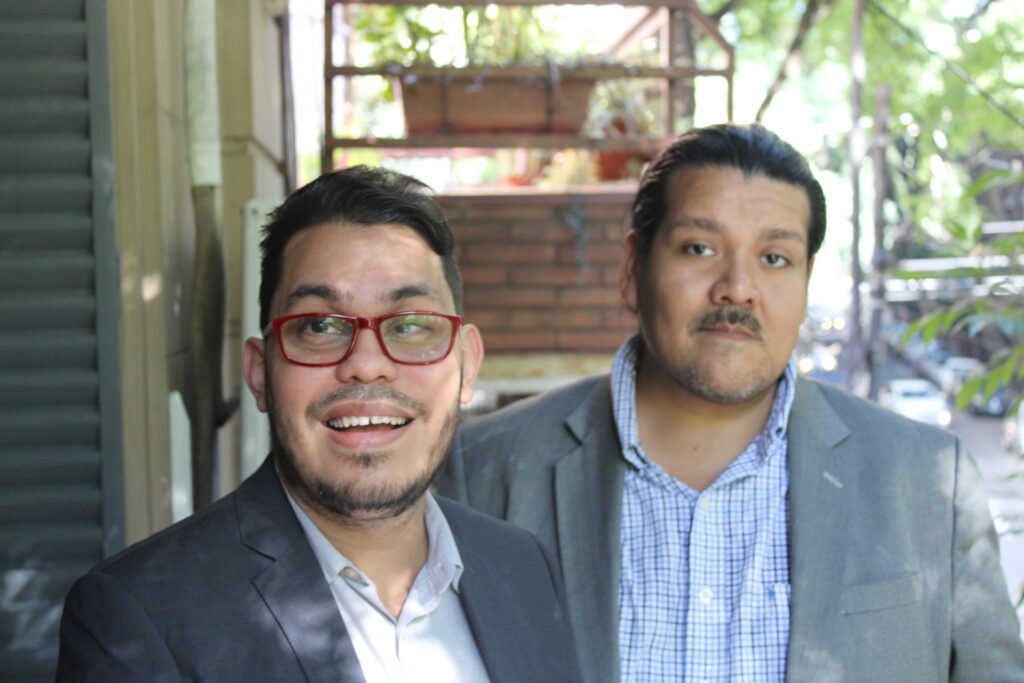
International denunciations of the crisis in Nicaragua
They currently monitor the development of the human rights situation in countries experiencing serious democratic setbacks or authoritarian regimes, such as Nicaragua. “For us, the Nicaraguan case is the most serious in the region and at the same time the most controversial, because in the midst of all the international pressure, it still has many actors in all sectors, not only in politics, who defend the Ortega government. -Murillo idealizing a revolutionary past that the Sandinista Front itself liquidated, which does not mean that his achievements in the past are not worth remembering and his mistakes are necessary to pass them through a transitional justice process,” he argued.
The organization has several cases before the Inter-American Commission on Human Rights (IACHR). In addition, they are preparing to send several complaints against the State of Nicaragua, also to the IACHR, from students who were expelled, harassed and forced into exile in various parts of the region; a complaint about students and officials of one of the universities that were confiscated. “Their right to education, freedom of association and expression has been violated even when the government” offers “possibility to continue their studies,” he emphasized.
“Another relevant case that is soon to be presented is that of Dr. Yonarqui Martínez, a relevant defender and leading face of the defense of political prisoners in Nicaragua. We want to inform the Inter-American Commission of the years of persecution, harassment, threats to the physical integrity of her and her relatives, a case that seems relevant to us that the State of Nicaragua faces, “she added.
Calidh seeks to position itself as a reference space where people and groups that have suffered human rights violations can find the legal and free accompaniment that their countries have denied them; They aim to help train hundreds of human rights defenders in the use of international complaint mechanisms so that they do not depend on intermediaries to present their cases and petitions.
personal plane
Danny Ramírez Ayérdiz is 32 years old. He graduated as a lawyer from the Polytechnic University of Nicaragua (Upoli). In Nicaragua he worked as a consultant for several civil society organizations, especially those that work with women. For five years he was a professor of human rights in the same university as his. He studied a Master’s Degree in Human Rights and Democratization at the National University of San Martín in Argentina. Currently, he is studying two doctorates, one in human rights at the National University of Lanús and another in Social Sciences at the University of Buenos Aires (UBA).
In addition to Calidh, it is part of ACT UP, an Argentine NGO that fights to solve the HIV crisis in the country. In addition, she collaborates with an organization of people of sexual diversity in the search for international justice options and belongs to the Study Group on Central America of the UBA from where they monitor the Nicaraguan situation.
